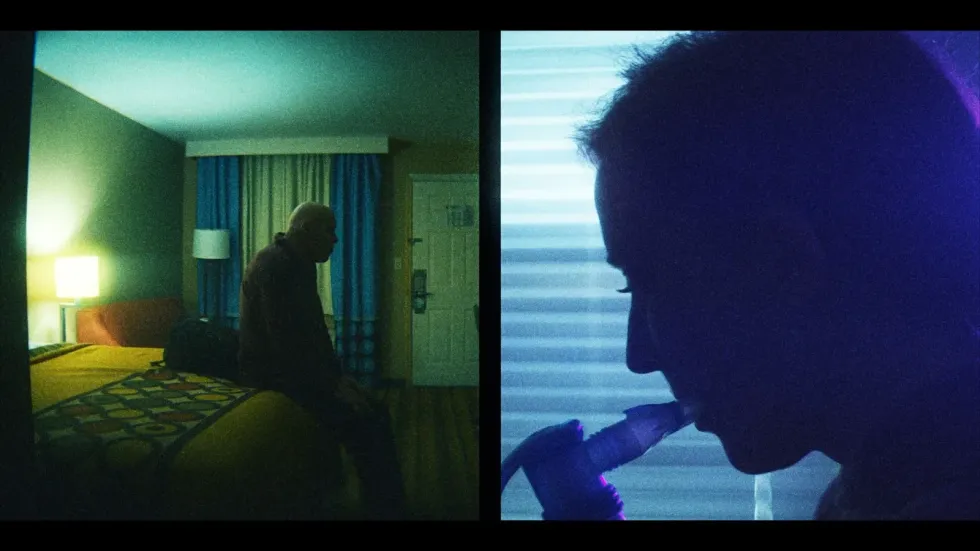Craft Intricate Action Sequences and Write Engaging Dialogue With 'Land of Bad'
Director William Eubank talks his approach to building action set pieces in pre, working with Russell Crowe, and respecting editors.
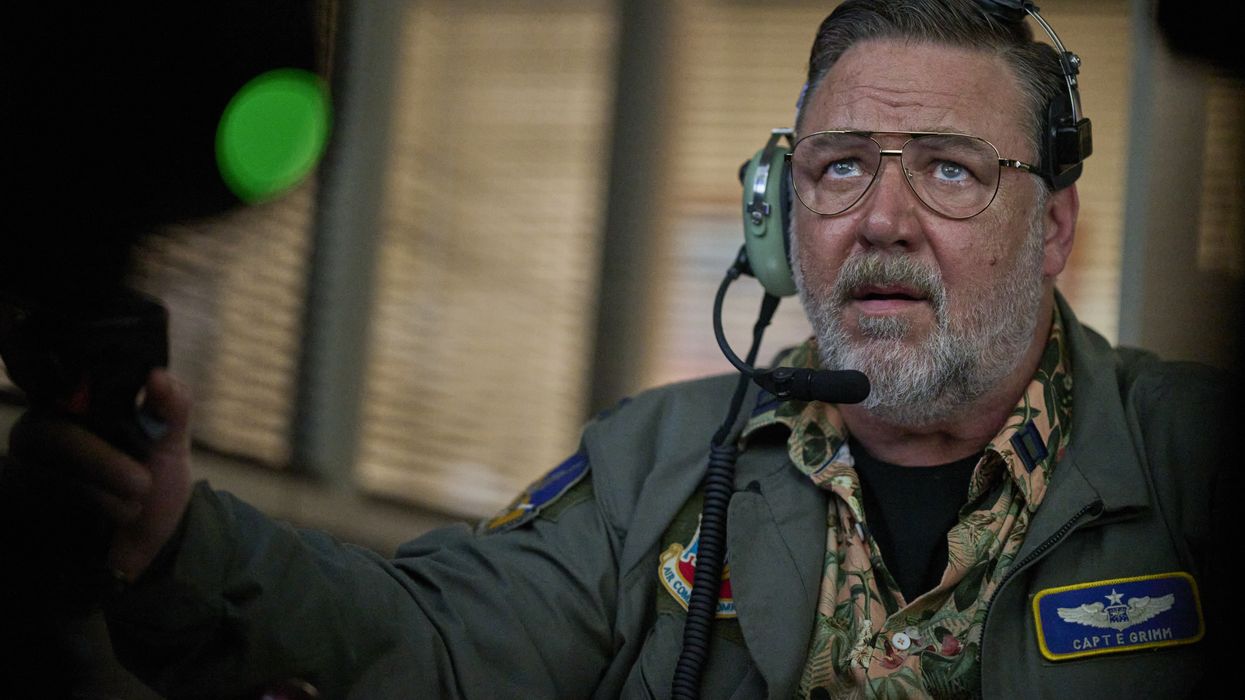
Russell Crowe in Land of Bad
I don't know about you, but anytime I watch a big action set piece in just about any movie, I'm always thinking: "Whoa, cool, how did they pull that off?"
Whether it's the nuclear bomb testing in Oppenheimer or full scale warfare in Napoleon, I can't help but be awed by the power of filmmaking and how it's all put together. That stuff has got to be hard to do (and to think artistically!), you know.
Lucky for me, I got to talk with William Eubank, director of the action throwback Land of Bad. Incredibly cool and smart, I was honored to pick his brain about how he prepped for big action sequences, how he communicates with his editor to perfect said sequences, and—fun, but perhaps superfluous—what it's like working with Russell Crowe in the midst of all this intricate and practical filmmaking.
Read on to hear some cool knowledge from the filmmaking battlegrounds of Land of Bad.
The following interview with William Eubank is edited for length and clarity
Prioritize Big Moments When Shooting Action Sequences
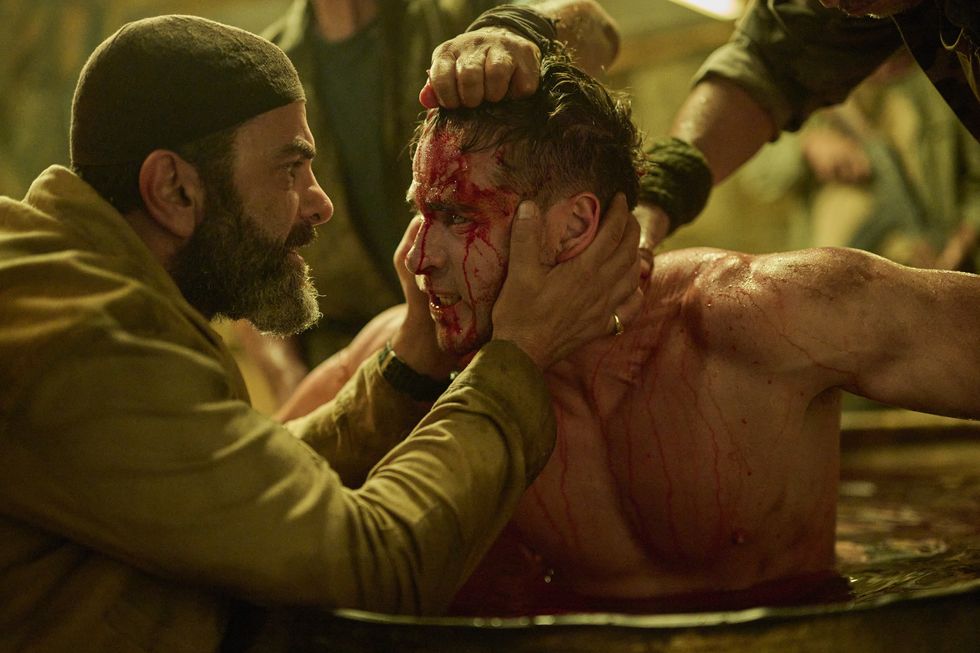
Land of Bad
The Avenue
"Land of Bad, in terms of action ... it's a puzzle. It's all done on paper in advance, and you'll have certain—I call them 'linchpins'—[shots and scenes] that are just do-or-die essentials.
You know you only have so much time that if you have an explosion going on— like, obviously that is the key element that is going to change everything around it. So you have to design on paper and work your project around those elements that are going to be taking precedent, if you will.
So yeah, it's a big paper puzzle that has so many ways that you're like, oh my gosh, if I do it this way, then we won't have time to do that. Or, the helicopter can only fly while there's still a little bit of light. So [there's a] cutoff there, so it comes down to just tons of planning with your confidants, your people that you work with, and trying to make a careful plan on paper.
What I tend to do is I'll write down the most important things that we need to get and then branch off of that [what to shoot if] you have time."
No Matter the Budget, Be Considerate To Your Cast
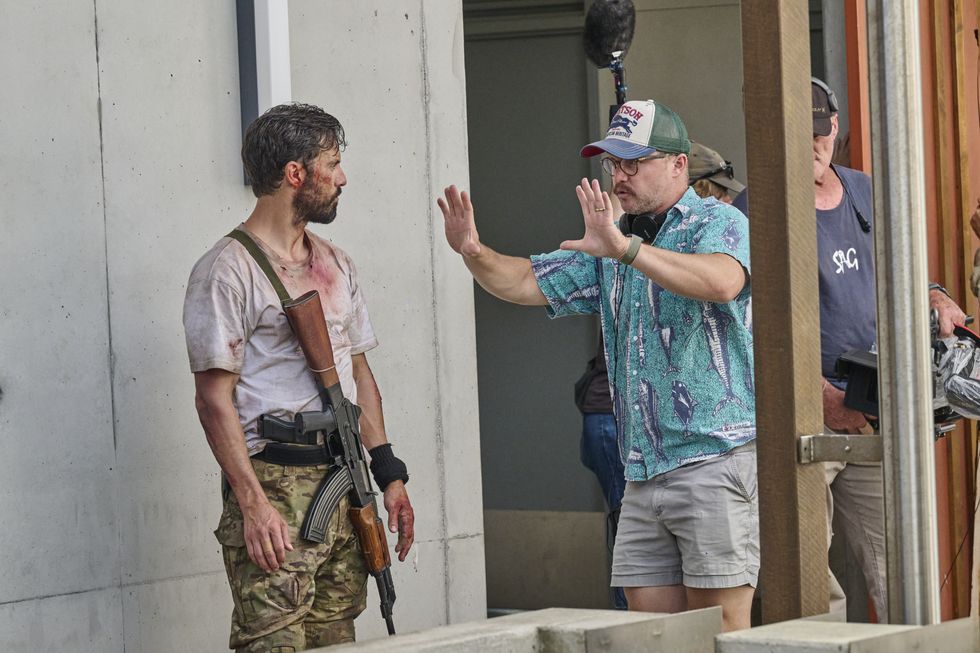
William Eubank directing Land of Bad
The Avenue
"[Underwater] was like 50 million. I hate online how it says that movie's like 60 or 70 [million]. It's like, I know it looks like that, but it definitely is a dollar under 50 million. This movie, [Land of Bad], is 20[million], so very different size, but still, you take the same elements that you learn from each project and you always try to build on them.
Underwater was a hard, hard, hard movie to shoot because those fricking suits were just killing the actors. So the actors were always unhappy, which is never a great place to have your actors, just in pain.
On Land of Bad, we had a lot of the jungles. We had leeches all the time, so there was little annoying things that we obviously had to contend with. And the monsoon season down there was a lot of rain, but luckily we didn't have a hundred pound suits that people couldn't even walk in, and were in pain all the time."
Develop a Relationship with Your Editor—No Matter What Genre
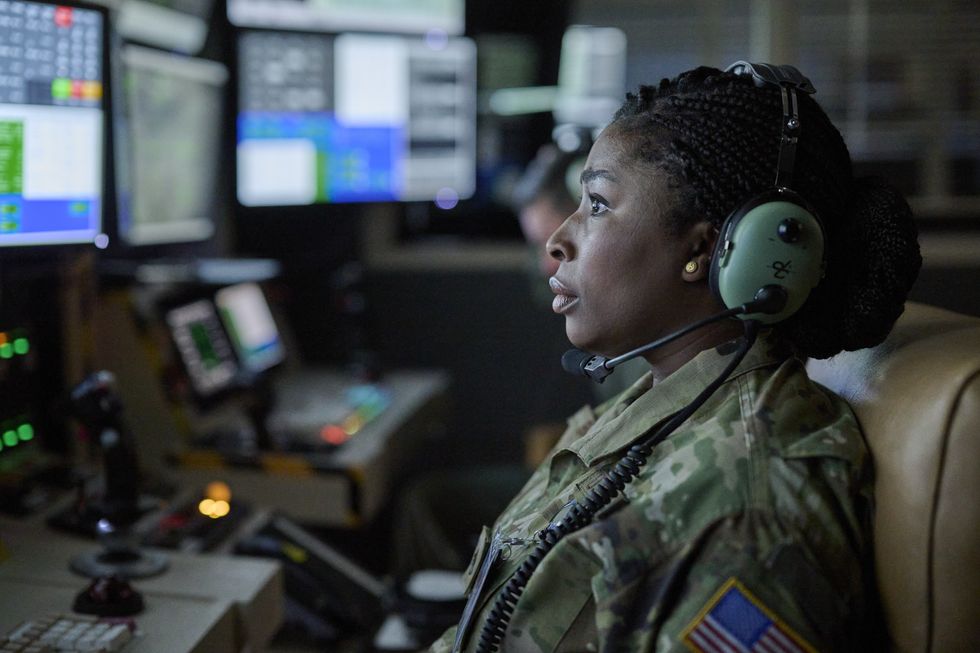
Land of Bad
The Avenue
"This is my third movie with editor (Todd E. Miller). It was very different.
The last movie I did with him was the last Paranormal Activity: (Paranormal Activity: Next of Kin), which was very—we kind of just shot documentary style and then you're just feeding him stuff. So there's not really a whole lot of times where he's calling me and saying, "Hey, you got to get this other shot."
Whereas on this, he would call me a bunch and be like, "Oh man, will you got to—I love this part, but I would love to see that."
And hopefully you can get those. You can't always go back, especially on a tight budget like this. But he's really good about getting back to me quick, and Todd's cool. He's a very different filmmaker than me. He started on the movie The Rock, and he worked on Con Air, and then he did a bunch of Transformers.
He's an action guy, but kind of old school action, and I like that. I don't know, we see very differently.
I'm always like, I want to hold on shots for a lot longer or make it almost semi boring. Things happen sometimes to give breathing room, but we challenge each other in that way. We're so different from each other that we tend to kind of find a middle ground where I think it turns into something digestible.
And he cut Underwater as well. So we've worked with each other for such a long time. So it's helpful to have that sort of trust in an editor.
it's an incredible job. Anytime I try to cut something on Premier or something, I always sit back and I'm like, oh, this is terrible. But I think I'm decent with sound and music and all those types of things, but editing, I'm terrible, but I respect the job so much because it's a different,
I just feel like it's a different part of your brain that just taps into that version of the storytelling beat by beat."
Working With Russell Crowe
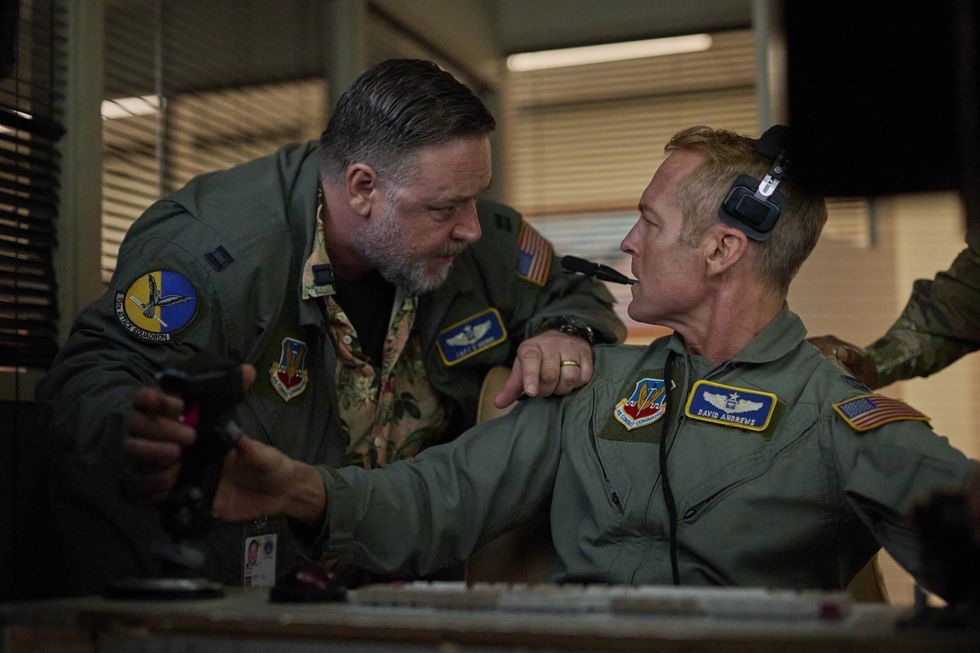
Russell Crowe directing in Land of Bad
The Avenue
"Russell Crowe is a genius.
He leaned so hard into this character who just has so much love, and the thing is he really is like that in life. He's such a sweet human being, really. He has so much knowledge about dance, and music, and different musical instruments and theater, and not because he's trying to be a Renaissance man, but because he has so much passion for life that he has all these stories and fun anecdotes.
He always wants to do it a little better. He won't quit. And I think that that type of person, you kind of see it. I don't know, he plays a character in this movie for sure, and he's a little funny at times, but he really does have that humor in him, and he created a lot of those little one-liners himself, and I don't know, it was a joy to work with him and let him breathe life into the Reaper character."
William Eubank's Advice? Write the Scenes You Want To Watch

William Eubank directing Land of Bad
The Avenue
"Learn how to control soft lighting. That's a really good one. Just learning how to control that, if you're making your own movies yourself.
Here's the thing, good lighting, the light sources are always bigger than you could ever imagine. If you've been on a Roger Deacon set, that light source is huge. He brings four by four within inches of the person's face, and it looks good. So you can't really push too much soft light at someone's face. Get it closer than you would think.
And then just write. Don't worry about plot and all these other books—they're fine to buy, those books, and understand how to save the cat and stuff. But more important than that, write scenes that you love and that are making you laugh and just worry about the scene by itself.
Anytime you're writing or creating—whatever you're doing. Just worry about that one scene and love it. Be like, oh my God, I can't wait for, I can't wait to make this play out. And then once you have that one, go to the next one. And then once you have that one, go to the next one. And by the end of the movie, you should have a stack of those scenes that you literally love every one of them.
And if you ever are writing one or two scenes just to make this scene, get to that one, you're in trouble because you're riding some banality that you don't even want to watch. So you truly have to love and want to watch your thing. Tarantino's sitting there laughing, giggling, and he's like, yeah. And then he blows his hat off in the back of the car, and then they just got to clean it up and it's going to be this whole thing.
He's got to clean it up. It's going to be a whole problem. It's going to be great. And he's laughing to himself, but he can't wait to shoot it. And that's how you should feel when you're creating something. You should love every little bit. Who gives a shit about the plot? I guarantee you, if you make something that you love, every little part of plot won't even fucking matter.
Some people might go, "Whoa, that was a weird fucking film."
But a lot of other people are going to be like, "Yeah, man, this shit was awesome. That one scene was so funny, or it's so creative or so crazy."
It's all that matters. Don't think about the whole picture. Just write your individual scenes, love your characters in your scenes, and just once you have enough of them stacked together, then you have a movie.
Catch Land of Bad now in Theaters

